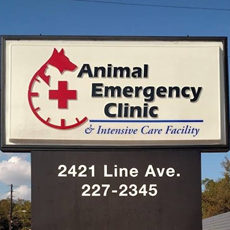Library
-
Elizabethan Collars in Cats
Un collar isabelino (también conocido cómo campana) es un capuchón o cono de plástico que ayudará a proteger las lesiones y heridas de su gato de más daños. Estos collares previenen que el gato se lame o muerda las lesiones del resto de cuerpo, o se rasque con sus patas las zonas de la cara y cabeza.
-
Senior Cat Care – Special Considerations
Mejoras en la nutrición, la prevención de enfermedades infecciosas y los avances en medicina veterinaria han hecho que nuestros gatos cada vez vivan más tiempo y tengan mejor calidad de vida. En la última década, el número de gatos que superan los diez años ha aumentado un 15% y el número de gatos que superan los quince años ha incrementado entre un cinco y un 14%.
-
Hospitals providing curbside care have restructured their practice to avoid the need for clients to enter the lobby and exam rooms. This measure was designed to promote physical (social) distancing during the COVID-19 pandemic; however, it may be used in other situations. This handout discusses the benefits and best practices of curbside care.
-
No, it is not a Lab with a perm - those fashionable and form-fitting curls are all natural for the aptly named Curly-Coated Retriever. One of the most eye-catching of the sporting breeds, the Curly boasts curls that would take us hours at the hairdresser to achieve, yet the coat maintenance of the Curly is surprisingly simple.
-
The Dachshund has an unmistakable look – long low body on short legs - that has earned it the nickname "Wiener Dog." Full of attitude, the Dachshund seeks the spotlight and demands attention, but offers loyalty, affection, and plenty of comedy in return.
-
Of all dog breeds, the Dalmatian is the most easily identified because of his distinctive coat. The image of a large white dog speckled with black spots all over his body, sitting on top of a fire truck or running along side a horse-drawn coach, is embedded in the minds of everyone, dog lover or no, regardless of age.
-
Dandie Dinmont Terriers are live-wire dogs that enjoy rousing play, yet can be as tough as nails when extracting a rodent from its den or when standing up to a challenge.
-
Cat food labels can certainly be confusing to interpret. In the United States, the Association of American Feed Control Officials (AAFCO) has developed model laws and regulations that states use for animal feeds. In Canada, pet food labeling guidelines are regulated by the Consumer Packaging and Labeling Act administered by Industry Canada. The Canadian government's Competition Bureau also has an extensive working group that upholds a voluntary code of conduct for the labeling and advertising of pet food. The most important information when comparing one dog food to another is the guaranteed analysis. Ingredient lists are somewhat useful when evaluating a particular cat food, but it is important to recognize the limitations. Talk to you veterinarian about the ingredient list and nutrient profile to help choose the diet that is right for your cat.
-
Dog food labels can certainly be confusing to interpret. In the United States, the Association of American Feed Control Officials (AAFCO) has developed model laws and regulations that states use for animal feeds. In Canada, pet food labeling guidelines are regulated by the Consumer Packaging and Labeling Act administered by Industry Canada. The Canadian government's Competition Bureau also has an extensive working group that upholds a voluntary code of conduct for the labeling and advertising of pet food. The most important information when comparing one dog food to another is the guaranteed analysis. Ingredient lists are somewhat useful when evaluating a particular dog food, but it is important to recognize the limitations. Talk to you veterinarian about the ingredient list and nutrient profile to help choose the diet that is right for your dog.
-
Your veterinarian wants to keep your pet healthy and the fact is that people who are better informed take better care of their pets. Do not be overwhelmed by “medicalese”. Try your best to understand this foreign language and if you cannot quite decipher it, ask your veterinarian to speak more plainly.




